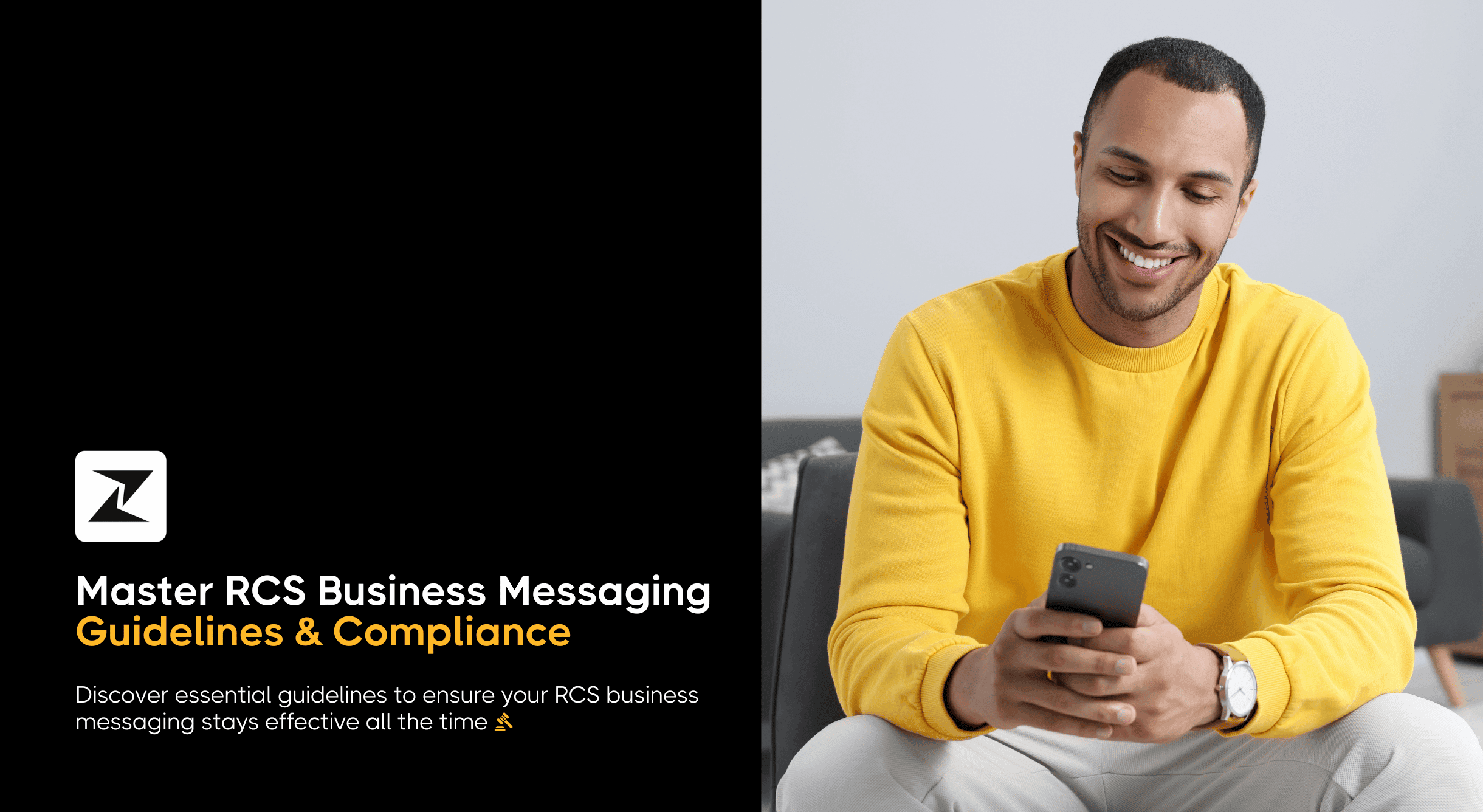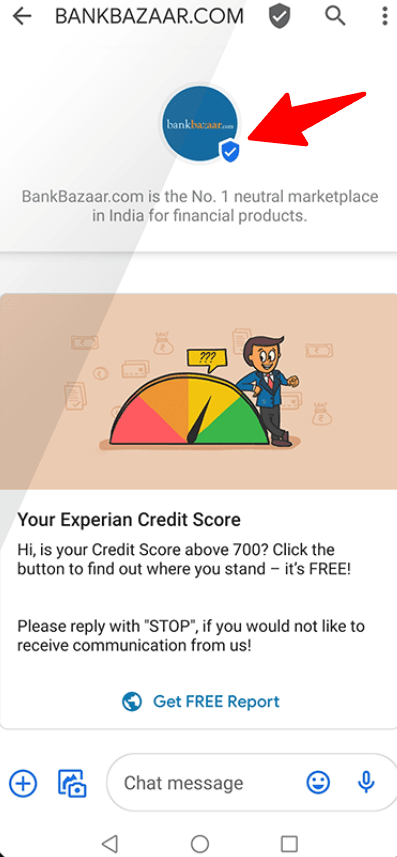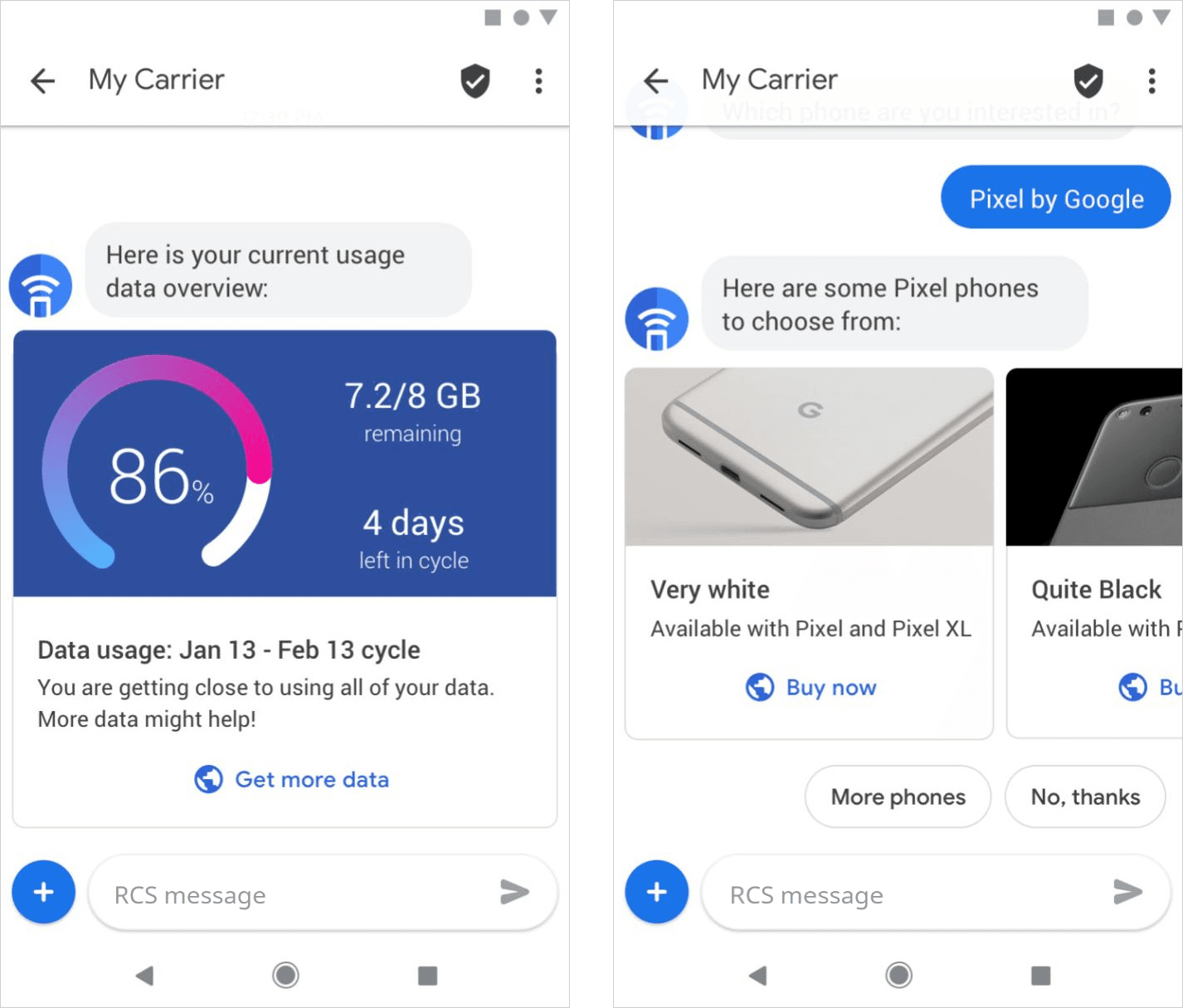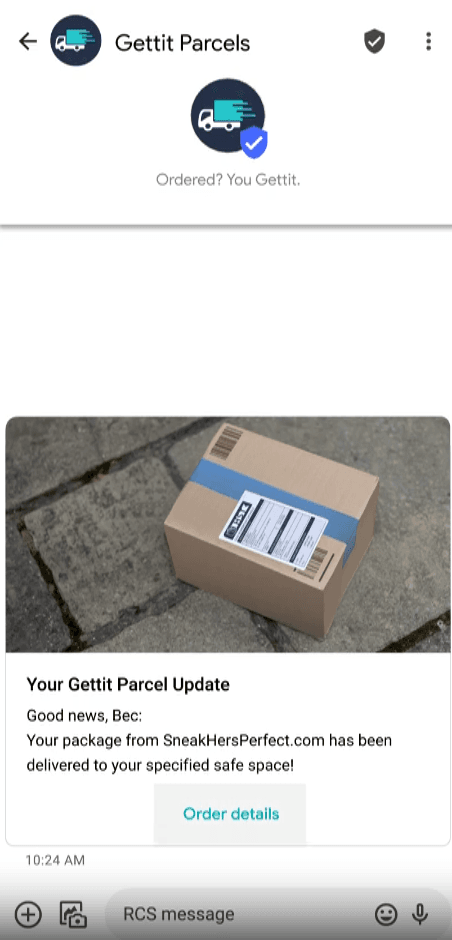RCS Business Messaging Guidelines & Compliance for 2026

With countless communication channels at your fingertips, it can become tempting to start using them instantly to scale your business. However, it is not that easy to pick a platform and start using it.
Before you can begin to connect with your audience over multiple channels, you need to ensure that you follow due compliance and regulatory laws based on the industry or regions you operate in. And RCS is no exception.
So, if you are also using or thinking of using RCS Business Messaging as a communication channel within your business, you have to be aware of all the guidelines and compliances that you have to abide by to maximize this revolutionary platform.
Having said that, in this post, I’ll tell you various RBM messaging regulations and compliances that you must adhere to to ensure your business does not get into trouble with regulatory authorities and keeps driving constant engagement to get more sales.
What is RCS Business Messaging?
RCS Business Messaging, or RBM, is an advanced version of traditional SMS that comes with modern messaging features like supporting multimedia content, interactive buttons, location sharing, and suggested replies, to name a few.
These interactive and engaging messages allow you to better communicate with your customers, understand their needs, offer customer support, and market your brand, all while using the default messaging app that comes preinstalled in every Android device and soon RCS will be supported in Apple’s iPhones also.
Now, you may ask, why should you consider RBM for your business communication? Well, for starters, using RCS offers enhanced engagement functionalities to create more compelling and encouraging messages.
Plus, since it is a secured messaging channel, you need to get verified and showcase your brand’s elements, such as name, icon, color, and identity at the top of every chat. This aspect alone makes RCS superior to SMS, where your customers cannot tell who is sending them messages.

It doesn’t end there. RCS messages support media-rich cards for increased engagement and a better way of showcasing your products or services to a wider audience. These rich cards include images, videos, GIFs, and interactive CTA buttons to help you get more conversions.

Key RCS Business Messaging compliance and guidelines
No matter if you are using RCS or WhatsApp for marketing, customer support, and engaging prospects, it is crucial to follow the guidelines and comply with regulations for streamlined outreach. In addition to following these rules, you have to safeguard your customers’ data and manage their consent.
Having said that, let’s take a closer look at some of the important RBM guidelines and compliances you must follow.
Verified RCS providers
When you start your RCS journey, you have to decide on an RCS service provider. So, make sure you go with a verified RCS provider. Some of the well-known RCS providers include:
- Zixflow
- Sinch
- Infobip
You can get in touch with your provider and ask them to guide you through the onboarding phase and learn about the best practices of using RCS.
However, with Zixflow, which is a Google-partnered solution, you can make the most of RCS. By running tailored marketing campaigns to promote your offerings, you can reach out to hundreds of customers at once.
Register your business with telecom carriers
Although Google has said that all the RCS communications will go through its subsidiary, Jibe Mobiles, in some countries, you have to register your business with telecom carriers who support RCS messaging.
This registration requires additional security and safety checks to make sure you don’t spam your customers or break any regulations. In addition to that, this carrier registration varies from country to country and requires different documents.
Having said that, Zixflow has tie-ups with multiple telecom carriers like Joi, Vodafone, and Airtel and can help you get your business profile registered and onboard you on RCS.
Kickstart your RCS initiatives with Zixflow.
Reach out to our support team and we will help you get started with RCS effortlessly.
Book a DemoOpt-ins and opt-outs
One of the most crucial aspects of running any outreach campaign is to manage the opt-ins and opt-outs. Many times it happens that businesses keep sending marketing messages to customers after they have already opted out. Or start sending these messages when they haven’t subscribed to your marketing list.
This fact can result in your messages being considered spam and they might get reported by your customers like them as well. So, to ensure your messages are considered high-quality for both the recipients and carriers, you need to manage customer consent properly.
You might ask, how can one manage consent correctly?
The answer to that is you should give obvious options to your customers if they want to unsubscribe from your marketing lists. Additionally, it is considered a great practice to clearly mention, at the time of signing up, that new subscribers can expect different types of RCS messages from your end and when. This way, they won’t be surprised when they get your messages.
One of the ways to achieve this is to integrate your CRM with RCS, so you can update opt-ins in real time and exclude opted-out contacts automatically from the next campaign. Having said that, ZIxflow’s native CRM lets you effortlessly monitor customers who have opted out of your marketing list.
Customer data & security
RCS messaging, like any other marketing, involves handling sensitive customer data and personal information. This information consists of contact information, financial data, and other details. For this reason, you have to comply with data privacy regulations like GDPR and CCPA (more on this later).
On top of that, you should make sure your customers feel secure when talking or interacting with your business. For example, you can adopt safe data storage practices, like sending RCS OTPs to implement 2FA to reduce the chances of data leaks.
Restricted or prohibited content
RCS marketing, same as other marketing campaigns, there are some specific kinds of content that you cannot send to your customers. These include:
- Fake products: Goods that are a replica or a knock-off version of some other product from a renowned brand.
- Items that can cause harm: You cannot promote products that can cause bodily harm like drugs, drugs-related paraphernalia, weapons, or so on.
- Discriminatory content: Messages involving discrimination or hate are strictly prohibited.
- Using national flags, icons, emblems, or religious symbols in your messaging.
- Adult content: Messages containing violent, gruesome, or explicit content are prohibited and will get your account banned.
- Using strong or vulgar language in your content.
- Using content revolving around conflicts, such as disasters, political events, or other similar situations to promote your offerings.
- Unauthorized content: Using elements like products, icons, logos, or copyrighted content that doesn’t belong to you.
The list of content is huge and you have to make sure that your RCS content complies with every regulation and local outreach laws. Ensure that your communication doesn’t include any fake details either about your brand or its offerings.
Also, you shouldn’t send messages that can appear as a scam or unsolicited promotion. This is because, doing so, can result in your account getting blocked/ banned, numerous customer complaints, or even legal problems.
An excellent method to guarantee that your RCS campaigns don’t get negatively affected is to use pre-approved messaging templates. These are built with the sole purpose of following all the corresponding guidelines and you can use them with a click of a button.

Business verification
Business verification is a carrier-side procedure where they validate that every company and sender account registered with the RCS service providers follows Google’s and their country-specific or local laws.
In some cases, telecom carriers inform you via email that your sender ID registration process has started, and sometimes, you have to reach out to the carrier, notifying them that you have initiated the registration process.
These RCS verification checks allow you, your carrier, and Google, enabling you to comply with relevant guidelines. In addition to that, validating your business also verifies your brand image and its elements.
Verify your business and build trust among your customers with secured RCS messages.
Sign up for RCS using Zixflow and get a verified business profile to boost customer loyalty.
Sign up NowConsidering international compliances
If you are a multinational brand with customers all over the world, then you have to maintain the global standards of RCS compliance and stick to the regulations proposed by GSMA, an entity that manages the development of RCS.
Some of the examples of global messaging regulations are:
- General Data Protection Regulation (GDPR): This applies to you if you operate in or if your users are located in the European Union.
- California Consumer Privacy Act (CCPA): Monitors data gathering and the usage of personal information of Californians.
- Telecommunications Consumer Protection Act (TCPA): Useful if you are situated in the United States, with its scope revolving around consent and general conversation practices.
These are some of the common messaging regulations. In addition to these, there are also industry-specific compliances such as:
- Healthcare: You must adhere to HIPAA regulations when using RCS for patient communications.
- Financial services: You need to comply with regulations like FINRA for secure communications.
So, to ensure you don’t accidentally miss any of these guidelines, get help from your RCS service provider. Clearly explain to them what you do, the locations you operate in, and the countries you are going to send the RCS messages to. They can better assist you with every international regulation that you have to follow.
Comply with messaging laws to maximize your RCS messaging strategies
RBM offers you advanced and futuristic features to engage your customers, allowing you to adopt a customer-centric selling approach that focuses on fulfilling their needs. That being said, to make the most of this amazing communication channel, you have to follow each RCS messaging-related guideline to stay clear of legal concerns.
By implementing the guidelines that I have mentioned above and collaborating with your RCS service provider, you can manage compliance and create effective, engaging messaging strategies to enhance customer relationships and drive business success.
